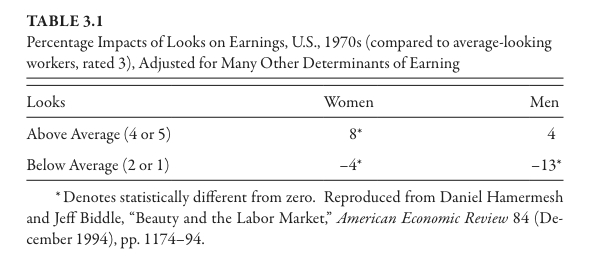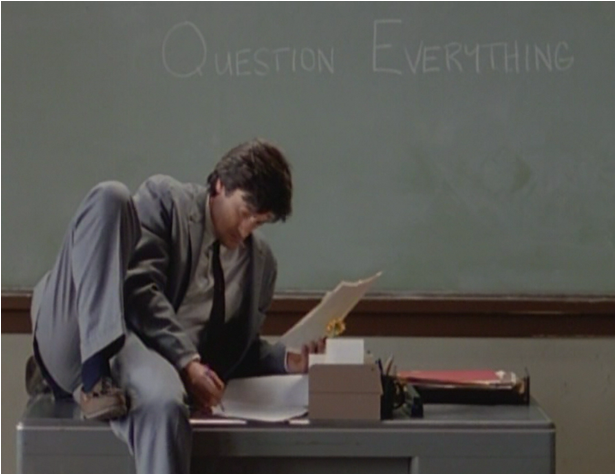Why Pretty Girls Get Better Grades

By:
A recent study reveals that beautiful women don't just have more successful careers and make more money, they also get significantly better grades in college than women viewed as less attractive.
It's easy to fathom why beautiful women are more rewarded in the workplace, especially in positions where they are responsible for interacting with customers or bringing in clients. "Better-looking workers bring in more for the employers, just as a more intelligent worker will," Daniel Hamermesh, an economics professor at the University of Texas in Austin, told the Wall Street Journal. "Paying them more is still a form of discrimination, but their attractiveness also tends to raise their productivity."
Academia, on the other hand, is supposed to be an equal playing field, rewarding students on merit rather than simply introducing them to forms of discrimination they will continue to experience as adults. This study found that the playing field may not be as level as we think.
How beauty was scored.
Researchers Rey Hernández-Julián and Christina Peters used the student ID-Card photographs of 6,777 individuals from the Metropolitan State University of Denver and asked outside "raters" to score their appearance on a scale from 1-10. The raters consisted of both anonymous women and men — and remain anonymous in the study — while the researches deliberately sampled a diverse student body.
The study's authors were particularly interested in how factors like personal grooming, hairstyle, and braces might subtly effect perceived beauty. Unlike previous research on beauty and the labor market, they chose to use a scale of 1-10 rather than 1-5 to account for how subjects presented themselves as well as their natural beauty.
 Freakonomics.com - freakonomics.com
Freakonomics.com - freakonomics.com
The grade.
Instead of using an average GPA, the study focused on specific courses, using ACT scores to control the data.
They looked at a 100-level English course and 100- and 200-level Economics courses, using an algorithm to assess how the students' appearances related to their academic success in courses completed in the classroom versus online.
"The main results in our paper were not about whether there is a return to appearance, but whether it would be smaller in online environments, where the student is not seen," Hernández-Julián told NPR Ed.
Beauty counts in the classroom.
Their results indicated that "pretty privilege" only counts in courses taken in a classroom with a professor. In online courses, appearance didn't play a role in how students were graded.
They also found that male professors are more likely to succumb to beauty bias than female ones, and that male appearance did not factor into a grading bias.
 Wordpress/thiswastv - wordpress.com
Wordpress/thiswastv - wordpress.com
Though the researchers didn't set out to address race or age as factors, they observed that white students earned .2 grade points higher than non-white students. They also noticed that older students grades were less related to their appearance than younger ones. This may be because self-confidence improves with age, and people who feel positive about their bodies are perceived as more attractive.
The findings supported research conducted in the 1970s that found that professors perceived attractive prospective students as more intelligent than less attractive students with identical academic records.
Pretty girls may get a better education.
Hernández-Julián and Peters suggest that beauty bias is not only a matter of grading — it's also possible that professors pay less attention to less attractive students. Pretty girls might learn more because they are being taught better and more attentively.
Whether it's due to skewed grading or inequalities in how support and instruction is provided, it's crucial that professors are aware of beauty bias and work to make sure all their students have equal opportunities to succeed.
